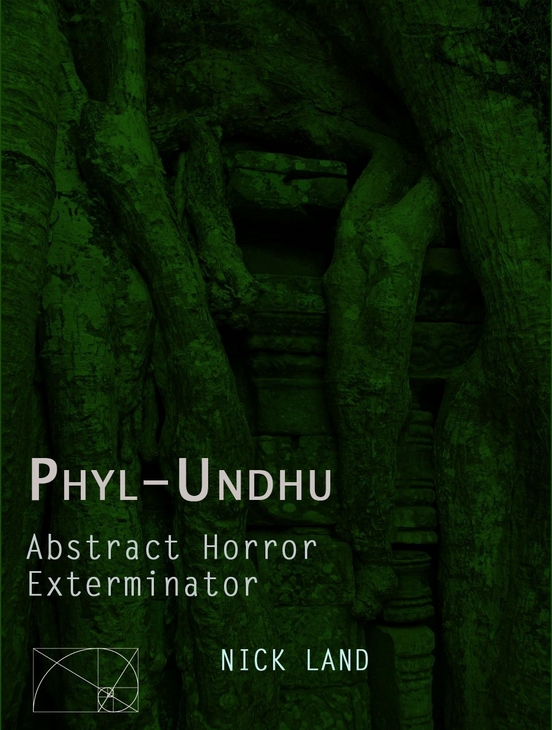 When you judge a book by its cover, you’ve got to be open to the chance of a mistrial. Phyl-Undhu’s title made me think it would be another attempt to stick electrodes on Lovecraft’s corpse and make him jump and dance for a few moments. Instead I got an extremely dense, detailed and scary story, with an excellent ending.
When you judge a book by its cover, you’ve got to be open to the chance of a mistrial. Phyl-Undhu’s title made me think it would be another attempt to stick electrodes on Lovecraft’s corpse and make him jump and dance for a few moments. Instead I got an extremely dense, detailed and scary story, with an excellent ending.
The story’s about a virtual-reality videogame that seems to take over peoples’ lives. Not through hypnosis or any sort of conventional addiction, but by being fascinating, confusing, and unsolvable.
None of the characters are sure how to beat it, they only know that they have to find “Phyl-Undhu”. The game is described as a massive environment that – like Stephen King’s Midworld – is both alien and very familiar. I liked Land’s invocation of apocalyptic size. That’s another nice touch often missed in horror stories about electronic games – a huge game like Skyrim can sometimes trick you into thinking it goes on forever, and that idea has a certain eerie power.
Playing the game occupies one corner of the story. The other corners are filled with philosophical fluff from Nick Land’s head, such as transhumanity, solipsism, and the “Fermi Paradox” (which questions why, in a universe replete with life’s building blocks, we’ve never seen signs of it anywhere except Earth). Many of these elements play into the larger story about the game, but in a way that doesn’t slow the momentum or drag things down.
The ending came and went, and it took a few moments for the full implications to sink in. I won’t spoil it, but it’s very, very good. Nick Land understands that a story’s end should NOT be the end, that it should take up residence in your mind and keep you thinking long after the pages go quiet.
I’m not very familiar with Nick Land, only knowing him as an “alt philosophy” person in the same category as Mencius Moldbug and Nick Bostrom. This is his first overt fictional work (as far as I know), although nothing he does can really be classified easily. In this case “futuristic philosophical horror” seems the closest fit, but it’s still a bad one. You’ll have to read for yourself.
No Comments »
Comments are moderated and may take up to 24 hours to appear.
No comments yet.
